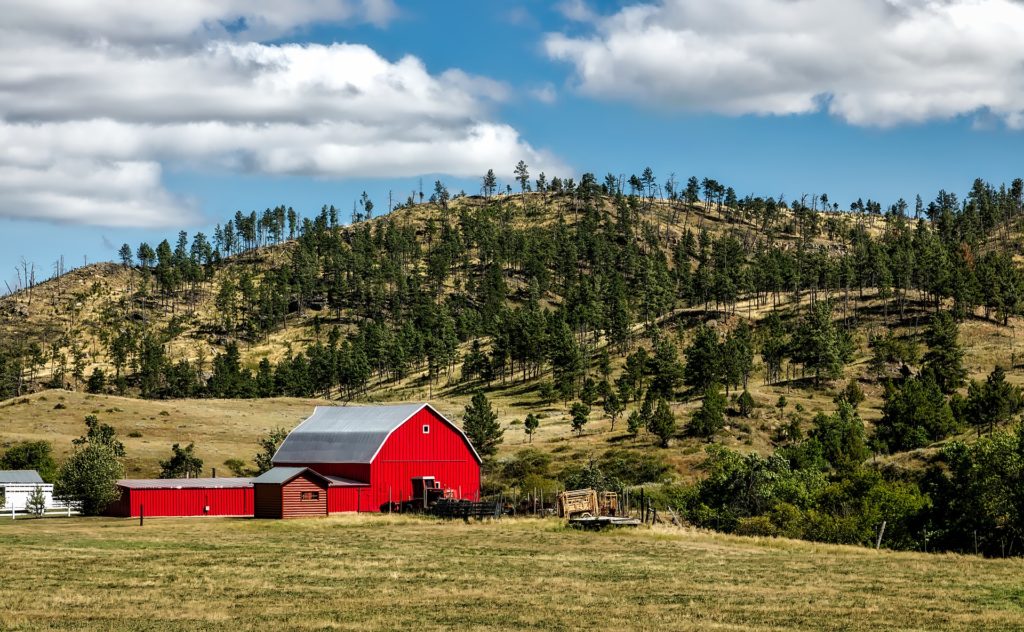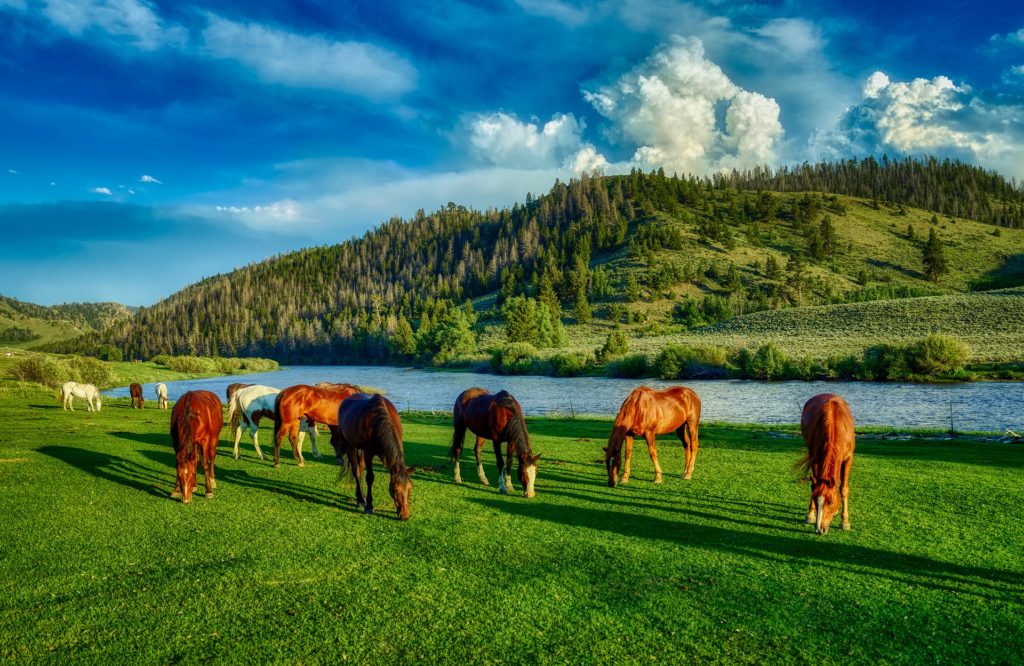How to start homesteading in Wyoming

Wyoming is the Cowboy State, so it’s not surprising that cattle is the number one agricultural industry there. But it’s certainly not the only thing going (or growing) there. There are more than 30 million acres of farmland in Wyoming with farmers raising everything from feed grains to specialized crops like sugar beets and honey from honeybees.
Wyoming is a state with plenty of wide open spaces and where farming has been a way of life for generations. The winters can be brutal with deep cold and blizzard conditions and the summers hot and dry. But all of that seems to have fostered a real pioneer spirit among those who raise crops and livestock there. If this sounds like the kind of place for your farm or homestead, here what you need to know about how to start homesteading in Wyoming.
Buying farmland in Wyoming
According to the United States Department of Agriculture, Wyoming had 29 million acres of farmland and 11,900 farms in 2017. Individual farms are cover a lot of territory and the average size of a farm or homestead in Wyoming is 2,437 acres. Hay, barley, wheat and corn are the major crops grown in Wyoming.
In 2017, the average price for farm real estate in Wyoming was $660 an acre, including land and buildings, among the lowest prices in the country and far below the national average of $3,080 an acre.
Growing crops in Wyoming
The average annual growing season in Wyoming is 125 days. The state is in the USDA plant hardiness zones 3, 4, 5 and 6. Winters are long in The Cowboy State, but plants including sweet corn, cabbage, beans, peppers, cucumbers, beets, carrots, tomatoes, pumpkins, squash, radishes, sweet cherries and potatoes do very well in Wyoming. And it’s a good idea to select early maturing plants. Wyoming’s soil is lacking in organics, so you are going to want to add compost, fertilizer and other amendments to your land before planting.
Raising animals in Wyoming

Wyoming is an open range state. This means vast areas of Wyoming land are open to livestock grazing regardless of land ownership. In an open range state, it’s up to any landowners who do not want livestock on their propriety to put up fencing to keep the animals out. This is the opposite of the majority of states in which it’s the responsibility of the livestock owners to keep their animals enclosed on their own property. The most popular livestock in Wyoming are beef and hogs, but some farmers have started to branch out into the more specialized food producing enterprise of aquaculture.
State and federal agencies work together with Wyoming ranchers to identify and implement sustainable grazing management practices.
How to start selling food in Wyoming
No special licence or permit is required to sell fresh produce you grow on your homestead. You can sell your produce directly to people at farmers markets, roadside stands or at commercial establishments.
In 2015, Wyoming passed its Food Freedom Act which allows for the sale of homemade food products in the state at farmers markets, farm stands or directly from the farm. These homemade foods include food that is prepared or processed in a private home kitchen. However, if these foods include meat or wild game, special licenses and permits may be required. The Food Freedom Act also allows you to sell specific fresh fish directly from your farm or at a farmers market.
The food regulations in Wyoming are under the Consumer Health Services Division at the Wyoming Department of Agriculture.
Wyoming organizations for farmers
- Wyoming Farm Bureau Federation
- Wyoming FFA
- Wyoming Farmers Marketing Association
- Wyoming CattleWomen
- Wyoming Wool Growers Association
- University of Wyoming Extension
How difficult is it to start farming in Wyoming?
It takes a bit of pioneer spirit to jump into farming or homesteading in Wyoming, but if you are up to it, it could be worth it. Land is affordable when compared to the rest of the country and Wyoming is a state the prides itself on its farm and ranching heritage. You are going to have plenty of support from fellow farmers and from state organizations in facing the challenges of starting your diversified farm or homestead in The Cowboy State. Once you are up and running, you are also going to find an active farmers market network to market your goods. All this, plus the fact that Wyoming is one of the states that lead the country in establishing free food — or food sovereignty laws — make it worth considering for your future farm.
